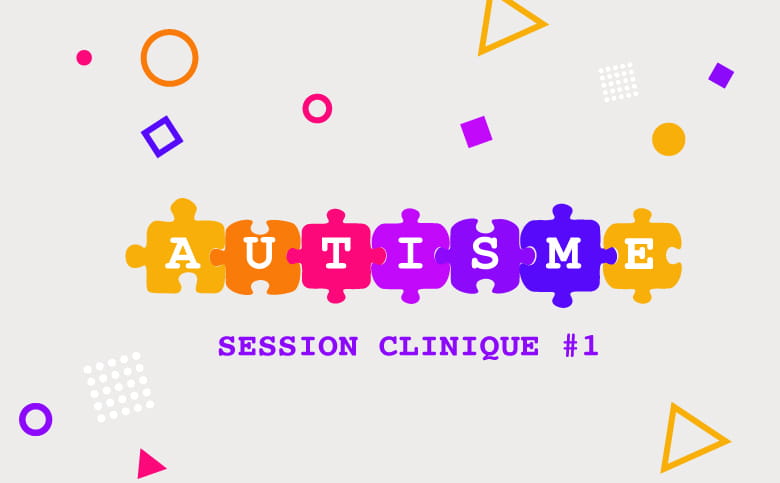The NeuroSchool PhD Program and its students offer you its first clinical session on the theme of autism. In this one-and-a-half-hour exchange between researchers and clinicians, we invite you to discover two sides of research on autism spectrum disorders, one fundamental and the other more clinical. Clinicians, researchers, and students, watch the replay!
This session will focus on two questions :
📌 How does neuroscience study autism spectrum disorders in mice? – Discussed with Jordan Molitor (PhD student at IBDM)
📌 How to promote access to somatic care for people with autism? – Discussed with Frédéric Perrel (PhD student at INT)
⌚ Each 20-minute presentation is followed by 10 minutes of questions, and then the discussion continue with a round table of about 30 minutes.
Jordan Molitor began his studies with a degree in psychology at Aix-Marseille University (AMU), and then joined the Master of Neuroscience at AMU, specializing in molecular, cellular, and integrative neuroscience (NMCI). Currently a Ph.D. student in Neuroscience at the IBDM (Developmental Biology Institute of Marseille) in the teams of Drs Lydia Kerkerian-Le Goff and Laurent Fasano, his work focuses on the study of the TSHZ3 gene in the development and functions of neuronal systems involved in autism spectrum disorders (ASD) in mouse models associated with ASD.
Frédéric Perrel is a nurse with a Ph.D. in neuroscience. After 15 years as a clinical nurse, he oriented his career towards the coordination of complex care pathways with the development of a program to improve access to somatic care for people with autism (PASS’Autisme). The scientific part of her thesis, promoted by the Timone Neuroscience Institute , focuses on eye-tracking as a measure of the impact of a transactional tool for somatic care, and the clinical part, supervised by the AP-HM, consists of a multicentric evaluation of the bio-psycho-social impact of PASS’Autisme on a cohort of 112 patients followed for 36 months. Her work focuses on the development of nursing sciences in France by addressing the bio-psycho-social dimensions of the human being in health: in fundamental research in neurosciences; in clinical research in psychiatry and in research in human and social sciences with the statistical approach of the School of Public Health of AMU.



